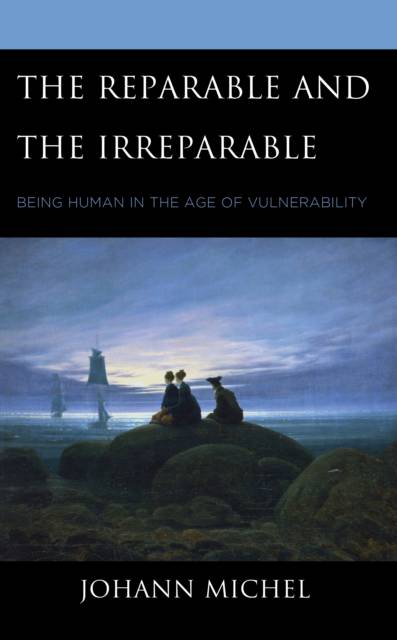
- Afhalen na 1 uur in een winkel met voorraad
- Gratis thuislevering in België vanaf € 30
- Ruim aanbod met 7 miljoen producten
- Afhalen na 1 uur in een winkel met voorraad
- Gratis thuislevering in België vanaf € 30
- Ruim aanbod met 7 miljoen producten
Zoeken
The Reparable and the Irreparable
Being Human in the Age of Vulnerability
Johann Michel
Hardcover | Engels
€ 186,95
+ 373 punten
Omschrijving
Since the mid-twentieth century, Western societies have seen an unprecedented increase in movements, demands, and policies in favor of reparations. The historical catastrophes that shook the last century are both the immediate origin of this groundswell and its founding paradigm. The Reparable and the Irreparable: Being Human in the Age of Vulnerability places reparation within a wider contemporary context and describes it in its full anthropological depth. Repair is a global phenomenon that does not present itself in a unified way. Ideas of repair and reparation are expressed at different levels; for instance, one can mend a damaged object, heal a wound, redress an injury, or make amends for an offence. Johann Michel explores how repair and reparation tell us about human beings' (natural) vulnerability, our (moral) fallibility, and our (social) incompleteness, but also about the many capabilities we draw upon to mitigate these shortcomings. It is from the heart of human finitude that repair and reparation draw meaning, and the irreparable--whether due to time or to a debt that can never be repaid--haunt any policy of reparation. Such are the challenges to be addressed by a philosophy of repair and reparation constructed in renewed dialogue with the social sciences.
Specificaties
Betrokkenen
- Auteur(s):
- Uitgeverij:
Inhoud
- Aantal bladzijden:
- 253
- Taal:
- Engels
Eigenschappen
- Productcode (EAN):
- 9781666906868
- Verschijningsdatum:
- 10/01/2023
- Uitvoering:
- Hardcover
- Formaat:
- Genaaid
- Afmetingen:
- 152 mm x 229 mm
- Gewicht:
- 544 g

Alleen bij Standaard Boekhandel
+ 373 punten op je klantenkaart van Standaard Boekhandel
Beoordelingen
We publiceren alleen reviews die voldoen aan de voorwaarden voor reviews. Bekijk onze voorwaarden voor reviews.








